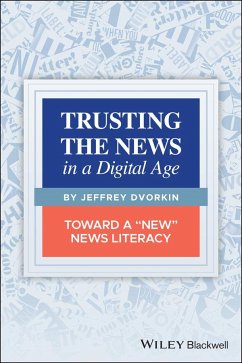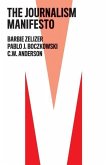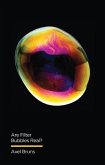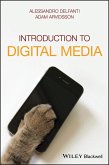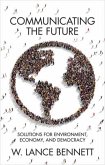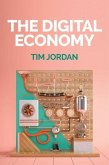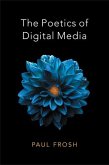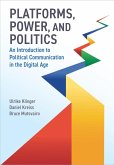TRUSTING THE NEWS in a Digital Age
How to use critical thinking to discern real news from fake news
Trusting the News in a Digital Age provides an ethical framework and the much-needed tools for assessing information produced in our digital age. With the tsunami of information on social media and other venues, many have come to distrust all forms of communication, including the news. This practical text offers guidance on how to use critical thinking, appropriate skepticism, and journalistic curiosity to handle this flow of undifferentiated information.
Designed to encourage critical thinking, each chapter introduces specific content, followed at the end of each section with an ethical dilemma. The ideas presented are based on the author's experiences as a teacher and public editor/ombudsman at NPR News. Trusting the News in a Digital Age prepares readers to deal with changes to news and information in the digital environment. It brings to light the fact that journalism is about treating the public as citizens first, and consumers of information second. This important text:
_ Reveals how to use critical thinking to handle the never-ending flow of information
_ Contains ethical dilemmas to help sharpen critical thinking skills
_ Explains how to verify sources and spot frauds
_ Looks at the economic and technological conditions that facilitated changes in communication
Written for students of journalism and media studies, Trusting the News in the Digital Age offers guidance on how to hone critical thinking skills needed to discern fact from fiction.
Hinweis: Dieser Artikel kann nur an eine deutsche Lieferadresse ausgeliefert werden.
How to use critical thinking to discern real news from fake news
Trusting the News in a Digital Age provides an ethical framework and the much-needed tools for assessing information produced in our digital age. With the tsunami of information on social media and other venues, many have come to distrust all forms of communication, including the news. This practical text offers guidance on how to use critical thinking, appropriate skepticism, and journalistic curiosity to handle this flow of undifferentiated information.
Designed to encourage critical thinking, each chapter introduces specific content, followed at the end of each section with an ethical dilemma. The ideas presented are based on the author's experiences as a teacher and public editor/ombudsman at NPR News. Trusting the News in a Digital Age prepares readers to deal with changes to news and information in the digital environment. It brings to light the fact that journalism is about treating the public as citizens first, and consumers of information second. This important text:
_ Reveals how to use critical thinking to handle the never-ending flow of information
_ Contains ethical dilemmas to help sharpen critical thinking skills
_ Explains how to verify sources and spot frauds
_ Looks at the economic and technological conditions that facilitated changes in communication
Written for students of journalism and media studies, Trusting the News in the Digital Age offers guidance on how to hone critical thinking skills needed to discern fact from fiction.
Hinweis: Dieser Artikel kann nur an eine deutsche Lieferadresse ausgeliefert werden.
""Trusting the News in a Digital Age" -- Anything with that title is to be supported!"
- Adam Clayton Powell III, Executive Director, Election Cybersecurity Initiative, USC Annenberg Center on Communication Leadership and Polity
"At last there's a touchstone for genuine news reporting--written by a professional grounded in true journalism. Need to define what 'fake news' really is, and how to defeat it? Tell a reliable source from a corrupt one? Grasp the economics of digital news? It's all in Jeffrey Dvorkin's Trusting the News in a Digital Age. It's a one-volume course syllabus in 21st century news, but more, because no journalist, lawyer or communications specialist should be working a keyboard without this book within reach."
- Arthur Kent, former war correspondent and author
"As an educator, I particularly appreciate the chapter "takeaways" and "ethical dilemmas". This book is richly informative and insightful. Students will get a lot out of this book."
- Dr. Karen McCrindle, head of the Department of French Linguistics and former program director of journalism at the University of Toronto Scarborough Campus
- Adam Clayton Powell III, Executive Director, Election Cybersecurity Initiative, USC Annenberg Center on Communication Leadership and Polity
"At last there's a touchstone for genuine news reporting--written by a professional grounded in true journalism. Need to define what 'fake news' really is, and how to defeat it? Tell a reliable source from a corrupt one? Grasp the economics of digital news? It's all in Jeffrey Dvorkin's Trusting the News in a Digital Age. It's a one-volume course syllabus in 21st century news, but more, because no journalist, lawyer or communications specialist should be working a keyboard without this book within reach."
- Arthur Kent, former war correspondent and author
"As an educator, I particularly appreciate the chapter "takeaways" and "ethical dilemmas". This book is richly informative and insightful. Students will get a lot out of this book."
- Dr. Karen McCrindle, head of the Department of French Linguistics and former program director of journalism at the University of Toronto Scarborough Campus

